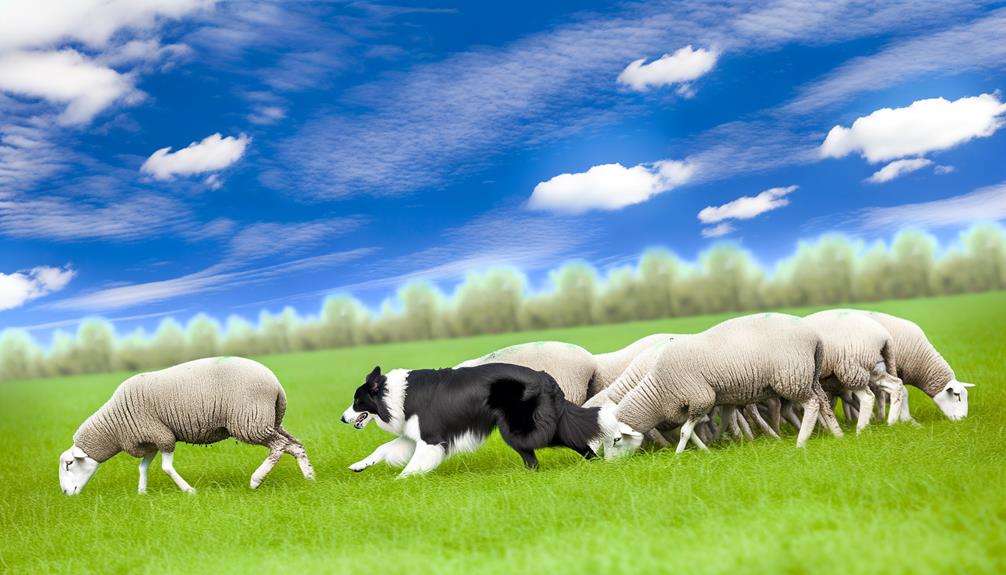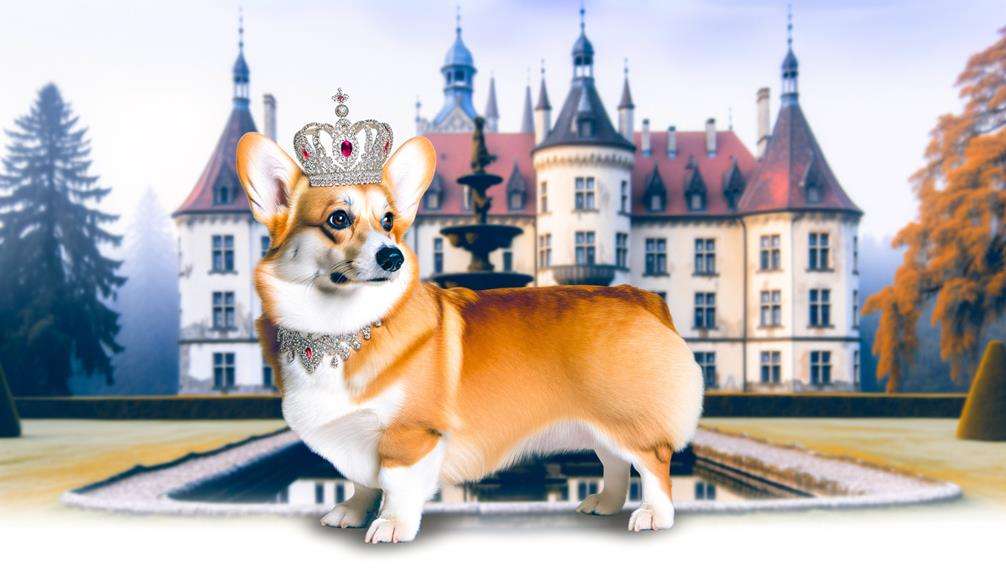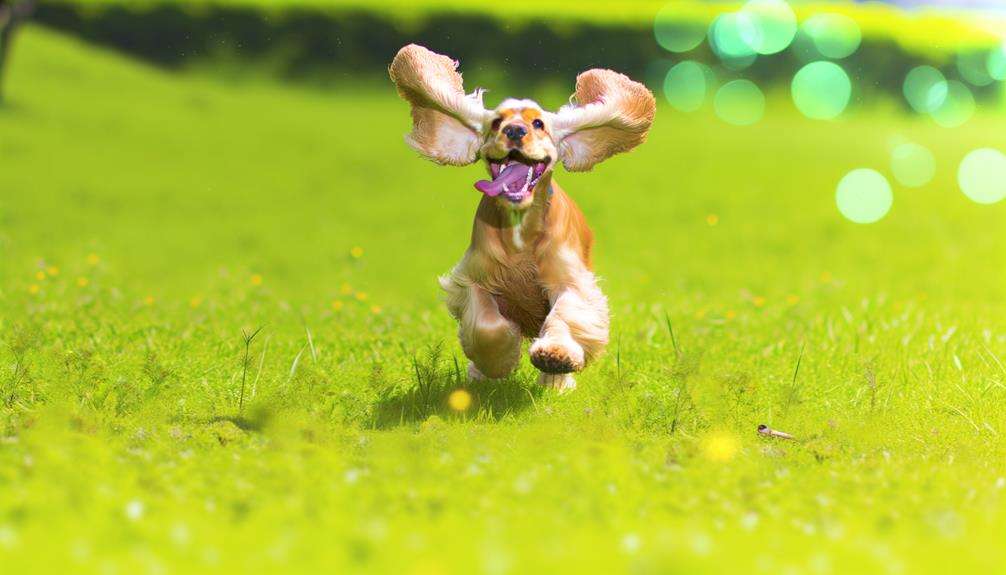Did you know that Rottweilers are ranked as the 8th most popular dog breed in the United States according to the American Kennel Club?
Their formidable appearance often leads to misconceptions about their temperament, but there is much more to these loyal companions than meets the eye.
Their strength, loyalty, and misunderstood nature are all aspects worth exploring further to truly appreciate the depth of their character and the unique bond they can form with their families.
Key Takeaways
- Rottweilers exhibit deep loyalty and protective instincts towards their families.
- Proper training and socialization are crucial for nurturing their natural traits.
- They form strong bonds with family members and thrive in family settings.
- Regular health check-ups and effective care practices ensure their well-being and longevity.
Rottweiler Strength and Power
When it comes to Rottweiler strength and power, their muscular build and distinctive physical features set them apart as formidable companions. Rottweilers boast a weight range of 80 to 135 pounds, underlining their robust stature. Their powerful jaws and broad heads are iconic physical traits that highlight their innate strength. Historically utilized as herding and guarding dogs, Rottweilers have a longstanding reputation for their physical prowess. This strength is further reinforced by their confidence and protective nature, making them exceptional guardians.
To ensure that their strength is channeled appropriately, proper training and socialization are crucial for Rottweilers. By instilling discipline and positive behaviors from an early age, their immense power can be harnessed responsibly, preventing any potential aggression. Understanding and respecting their physical capabilities is key to fostering a harmonious relationship with these loyal and muscular companions. Proper care and guidance not only enhance their strength but also cultivate their loyalty and affection towards their family.
Loyalty in Rottweilers
Loyalty shines brightly in Rottweilers, a trait deeply ingrained in their nature and character. These dogs aren't just pets; they're loyal companions who form strong bonds with their families. Rottweilers' unwavering loyalty is evident in their protective instinct towards their loved ones. They're fiercely loyal and devoted to their families, always ready to stand by them through thick and thin.
When you welcome a Rottweiler into your home, you gain a companion who'll prioritize your safety and well-being. Their loyalty goes beyond mere companionship; it extends to a deep-rooted commitment to protect and care for those they love. This breed's reputation for loyalty is well-deserved, as they've a natural inclination to be devoted to their families.
Rottweilers are more than just guard dogs; they're steadfast allies who'll remain loyal to you throughout their lives. Embrace their loyalty, and you'll have a faithful and loving companion by your side.
Misconceptions About Rottweilers
Amidst the deep-rooted loyalty Rottweilers exhibit towards their families, there exists a prevalent misconception surrounding their nature that warrants clarification. These misconceptions often stem from misunderstandings about their protective instincts and can be dispelled through education and responsible ownership practices.
- Protective Instincts Misinterpreted: Rottweilers' natural protective instincts are often misinterpreted as aggression, leading to misconceptions about their temperament.
- Need for Socialization and Training: Proper socialization and positive reinforcement training are crucial for Rottweilers to showcase their gentle and loyal nature.
- Impact of Misconceptions: Misconceptions about Rottweilers can result in breed-specific legislation (BSL) that may not address the root causes of aggression, hindering positive interactions with the breed.
The Working History of Rottweilers
Originating in ancient Rome, Rottweilers were purposefully bred as herding and guarding dogs, and their history is deeply rooted in their roles as working animals. These dog breeds accompanied Roman armies, proving their worth in conquests, and later settled in Rottweil, Germany, where they excelled as cattle drovers and protectors, showcasing their versatility as working dogs. The physical characteristics of Rottweilers, such as their large and muscular build, directly reflect their historical roles. Their distinctive black and tan markings, strong broadhead, and powerful jaw all contribute to their strength and confidence as working animals.
| Working History of Rottweilers |
|---|
| Accompanied Roman armies |
| Settled in Rottweil, Germany |
| Excelled as cattle drovers and protectors |
| Large and muscular build |
| Distinctive black and tan markings |
Understanding the rich working history of Rottweilers helps us appreciate the strength and loyalty that are ingrained in their nature.
Rottweilers as Family Companions
Rottweilers have a remarkable ability to form strong bonds with their families, becoming loyal and affectionate companions.
Their protective instincts can be honed through training, ensuring a safe and loving environment for everyone at home.
With their love for being close to their human pack, Rottweilers often thrive in family settings, making them wonderful additions to households seeking a devoted canine companion.
Family Bond With Rottweilers
In their role as family companions, Rottweilers forge deep, unwavering bonds with their loved ones, demonstrating a unique blend of loyalty and affection. When welcoming a Rottweiler into your family, you can expect:
- Affectionate Gestures: Rottweilers often show their love by leaning against you or cuddling close, seeking physical closeness and reassurance.
- Socialization Importance: Properly socialized Rottweilers interact well with children and other pets, enhancing the family bond and ensuring smooth relationships.
- Training Necessity: Positive reinforcement training is key to nurturing a harmonious connection with your Rottweiler, building trust, respect, and understanding within the family unit.
Building a strong family bond with Rottweilers involves love, patience, and mutual respect.
Rottie Traits in Homes
With their affectionate nature and loyal disposition, Rottweilers seamlessly integrate into homes as cherished family companions. Rottweilers make excellent family pets when properly trained and socialized, showcasing a positive temperament that thrives on leaning or cuddling with their loved ones.
Despite their protective instincts, these dogs aren't inherently aggressive; instead, they're devoted and loyal members of the family. Socialization and training play a pivotal role in shaping their good behavior, making positive reinforcement techniques essential.
When given the right care and guidance, Rottweilers can be cuddly, loving, and devoted companions in a family setting, adding warmth and companionship that enriches family life.
Training Rottweilers With Positive Reinforcement
When training your Rottweiler with positive reinforcement, remember that rewarding good behavior is the key to success.
By consistently using treats, praise, and playtime, you can shape your Rottweiler's behavior effectively and strengthen your bond.
Building trust through training will help your Rottweiler become a well-adjusted and obedient companion without the need for fear or aggression.
Reward-Based Training Methods
Using reward-based training methods with Rottweilers fosters a strong bond between you and your canine companion, shaping their behaviors positively through trust and mutual respect. This approach not only promotes obedience but also enhances good behavior and social interactions. Here's why reward-based training is beneficial for your Rottweiler:
- Encourages Obedience: By rewarding desired behaviors, your Rottweiler learns to follow commands and instructions more willingly.
- Promotes Good Behavior: Using positive reinforcement helps in reinforcing good behavior, making it more likely to be repeated.
- Enhances Social Interactions: Reward-based training encourages your Rottweiler to interact positively with other dogs and humans, fostering a well-rounded and sociable pet.
Consistency Is Key
Consistency plays a crucial role in training Rottweilers with positive reinforcement, ensuring clarity in expectations and fostering a strong bond between you and your loyal companion.
By maintaining consistency in your training methods, you help your Rottweiler understand what's expected of them, leading to improved obedience.
Positive reinforcement, such as treats and praise, serves as a powerful tool in motivating your pet to learn and follow commands effectively. Rewarding behaviors that you want to see repeated encourages your Rottweiler to become well-behaved and responsive.
Through consistent and positive training techniques, you create a supportive environment for your Rottweiler to thrive and develop into a well-adjusted companion.
Building Trust Through Training
To establish a strong foundation of trust and loyalty with your Rottweiler, focus on utilizing positive reinforcement training methods that emphasize encouragement and rewards. Positive training techniques not only shape your Rottweiler's behavior but also nurture a deep bond based on trust and respect.
Here are some key points to consider when training your Rottweiler with positive reinforcement:
- Consistency: Be consistent in rewarding desired behaviors to reinforce good conduct effectively.
- Patience: Practice patience and understanding during training sessions, as it takes time for your Rottweiler to learn and adjust.
- Celebration: Celebrate small victories and progress made by your Rottweiler to boost their confidence and strengthen your bond.
Socializing Rottweilers for Well-Rounded Behavior
Early and proper socialization is a key factor in fostering well-rounded behavior in Rottweilers, enhancing their interactions with both people and other animals. Socializing your Rottweiler from an early age is crucial for instilling positive behaviors and preventing potential issues as they mature. By exposing them to various environments, animals, and people, you help build their confidence and adaptability, making them more comfortable and well-adjusted in different situations.
Well-socialized Rottweilers are more likely to exhibit friendly and confident behaviors, as they've learned appropriate ways to interact with others. Starting socialization at a young age allows them to develop good manners and understand how to communicate effectively. Additionally, positive interactions during socialization can help your Rottweiler feel secure and happy, leading to a stronger bond between you and your furry companion. Remember, the effort you put into socializing your Rottweiler will pay off in the form of a well-behaved and well-adjusted pet.
Rottweiler Health and Care Tips
Taking care of your Rottweiler's health is crucial for their well-being. Regular vet check-ups, grooming, and providing a safe environment are key components of effective care.
Health Essentials for Rottweilers
When caring for your Rottweiler's health, prioritizing regular vet check-ups and preventive measures is essential to ensure their well-being and longevity. Here are some health essentials for your Rottweiler:
- Regular Veterinary Care: Schedule routine check-ups to monitor your Rottweiler's health status and address any concerns promptly.
- Preventive Measures: Stay proactive by keeping up with vaccinations, flea, and tick prevention to safeguard your Rottweiler from potential health risks.
- Senior Care: As your Rottweiler ages, consider providing supportive measures such as non-slip mats and orthopedic beds to enhance their comfort and mobility.
Effective Care Practices
Ensuring effective care practices for your Rottweiler involves a holistic approach that prioritizes their health and well-being at every stage of life. Regular veterinary care and preventive measures are essential to address common health concerns like hip dysplasia, arthritis, and cancer, requiring proactive health management. As your Rottweiler enters their Senior Years, consider providing specialized care such as non-slip mats and orthopedic beds to support their aging joints. Additionally, incorporating exercise and mental stimulation into their routine is vital for their overall well-being. Remember that regular grooming practices, including brushing and occasional baths, are crucial for maintaining a healthy coat and skin. Below is a table summarizing key care practices for your Rottweiler.
| Care Practice | Description | Importance |
|---|---|---|
| Regular veterinary care | Schedule check-ups and vaccinations | Ensures early detection |
| Exercise & stimulation | Engage in physical activity and mental challenges | Promotes overall health |
| Preventive care measures | Administer flea, tick, and heartworm preventatives | Prevents illnesses |
| Senior Years care | Provide support for aging joints and special needs | Enhances comfort |
| Grooming routine | Brushing, baths, and nail trimming for coat health | Maintains hygiene |
The Protective Nature of Rottweilers
Rottweilers, with their innate protective instincts honed through generations of guarding and herding, embody a steadfast loyalty that shapes their behavior towards loved ones. Their protective nature is a key trait that can be channeled positively with the right approach:
- Loyal Companions: Rottweilers are fiercely loyal to their family members, often forming deep bonds with those they consider part of their pack.
- Guardians of the Family: Their protective instincts make them natural guardians of their family, alerting them to potential threats and dangers.
- Special Care for Children: Rottweilers may exhibit protective behavior towards children, making them excellent companions for families with kids.
Understanding the importance of responsible ownership, including proper socialization and training, is crucial in nurturing their protective instincts in a healthy way. By acknowledging and respecting their protective nature, you can foster a strong and loving bond with these loyal guardians of your family.
Rottweilers: A Resilient and Loving Breed
Their resilience and loving nature make Rottweilers cherished companions in households worldwide. Despite their misunderstood reputation for being aggressive, Rottweilers are a resilient breed that thrives on positive training and proper socialization. Their loyalty knows no bounds, making them exceptional and protective companions for those they hold dear.
Rottweilers' protective nature stems from their history as herding and guarding dogs, but it's their affectionate and loving demeanor that truly sets them apart. With the right guidance and care, Rottweilers showcase their true essence as loyal and devoted family members. Their strength and confidence are complemented by a gentle soul, making them wonderful additions to any loving home.
Frequently Asked Questions
What Is the Nature of a Rottweiler?
Rottweilers have a protective nature that can be mistaken for aggression. They are an intelligent breed with a playful demeanor and an affectionate side. Building a strong bond with them through proper training reveals their athletic abilities.
Are Rottweilers Loyal?
Yes, Rottweilers are incredibly loyal. They pass the loyalty test with flying colors, forming a strong owner bond. Proper training tips and socialization are key to showcasing their protective instinct and positive temperament traits effectively.
What Is the Attitude of a Rottweiler?
A Rottweiler's attitude is a blend of protective demeanor and fearless loyalty. They exhibit strong-willed behavior, enjoy playful interactions, and have social tendencies. Obedience training is crucial to channel their natural instincts positively.
What Are the Instincts of a Rottweiler?
When it comes to Rottweilers, their instincts run deep. From protective and hunting instincts to pack, working, guardian, and herding instincts, understanding these innate drives is key to nurturing their strengths and loyalty.
Conclusion
You've learned about the strength, loyalty, and misunderstood nature of Rottweilers. Remember, with proper socialization and training, these loving companions can thrive in a family setting.
Embrace their protective instincts and resilient spirit, and you'll have a devoted friend for life. Keep up with their health and care needs, and enjoy the affectionate cuddles and leanings that make Rottweilers truly special.
Trust in the bond you've formed, and watch it grow stronger every day.






